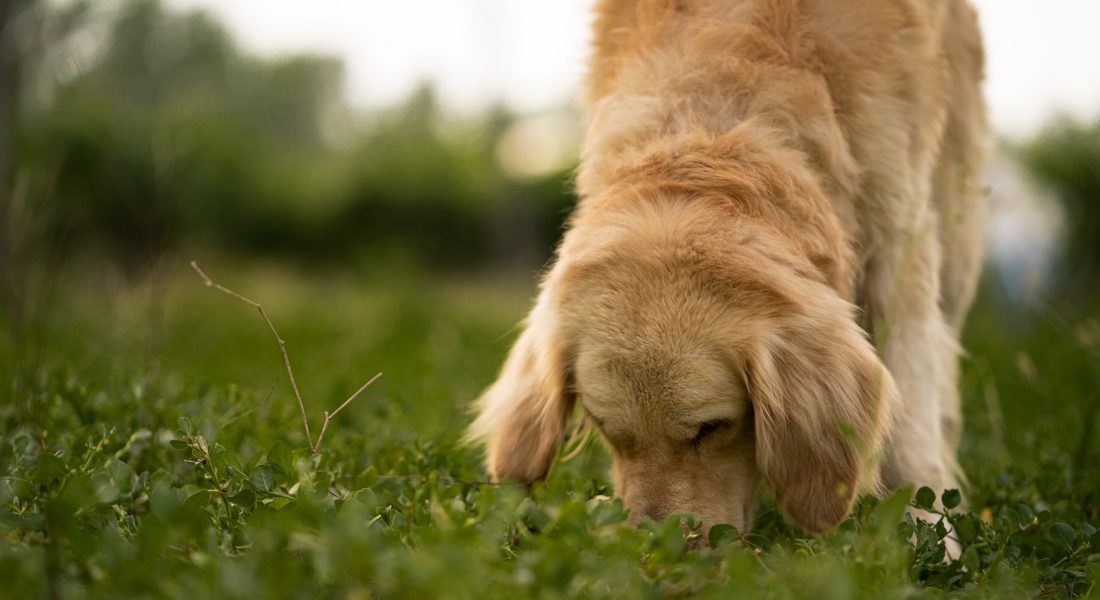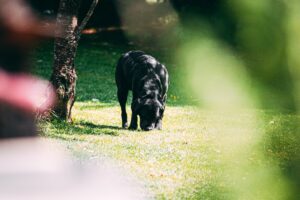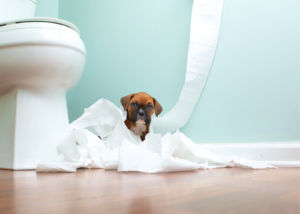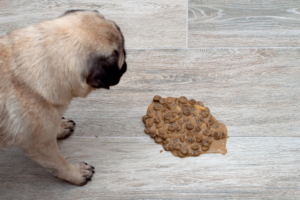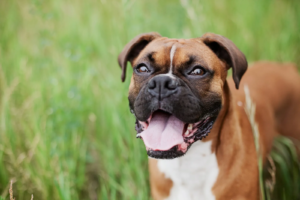Dogs are lovable creatures that bring joy and companionship to our lives. However, there is one behavior that can leave any dog owner feeling disgusted and puzzled – eating poop.
This bizarre habit is not uncommon amongdogs, but it raises many questions. Is it an instinct or a sign of an underlying issue? Can it be stopped or prevented?
In this article, we’ll explore why dogs eat poop and provide valuable insights on managing this behavior. So, if you’re a dog owner dealing with this issue or simply curious about it, keep reading!
Why Do Dogs Eat Poop?
The science behind this behavior still needs to be clarified, but there are a few theories that attempt to explain it. Some experts suggest that dogs eat poop because of their ancestral instinct – in the wild, they consume feces to protect their pack from parasites and diseases. Another theory is that dogs may enjoy the taste of feces or see it as an easily accessible snack.
But perhaps the most plausible explanation is rooted in a dog’s behavior as a scavenger – they may eat poop out of boredom or because they are not getting enough nutrients from their diet. Plus, some dogs may also engage in this behavior to get attention from their owners. Certain medical conditions may cause a dog to eat poop, such as malabsorption disorders or pancreatic insufficiency.
While the exact reason behind this behavior may vary from dog to dog, it is important to address it and find ways to manage it.
Eating Poop Is Normal for Dogs and Puppies
The main and most comforting thing to know is that eating poop is a common behavior among dogs, especially puppies. It’s not unusual for a mother dog to eat her puppies’ feces to keep the nesting area clean and free from potential predators. Puppies may also start exploring their surroundings by smelling and tasting everything, including poop. This behavior usually disappears as they grow and learn what is acceptable to eat.
Also, if you have multiple dogs in your household, one dog eating another’s poop is not uncommon and should not be a cause for alarm. It’s a common way for dogs to bond and share scents.
However, this behavior can become problematic when it persists into adulthood or becomes excessive.
Facts About Dogs Who Eat Poop
- Up to 16% of dogs are reported to eat poop regularly
- Female dogs and small breeds are more likely to engage in this behavior
- Coprophagic (the technical term for eating feces) is more common in multi-dog households
- The urge to eat poop can be reduced with a high-quality, well-balanced diet and plenty of physical and mental stimulation
- Punishing a dog for eating poop can have negative effects on their behavior and trust in their owner
How to Stop a Dog From Eating Poop
If you’re dealing with a poop-eating dog, there are some steps you can take to prevent or reduce this behavior.
First, ensure your dog is on a proper diet and getting all the necessary nutrients. This will improve their overall health and decrease the likelihood of them seeking out feces as an alternative food source.
Secondly, provide plenty of physical and mental exercise for your dog to keep them engaged and satisfied. A tired and stimulated dog is less likely to engage in destructive or undesirable behaviors.
Thirdly, keep your yard and living space clean from any feces. This will remove the temptation for your dog to eat poop and help prevent the spread of potential parasites or diseases.
Consider using a deterrent or training your dog to “leave it” when they show interest in poop. And most importantly, avoid punishing or scolding your dog for this behavior, as it can worsen the problem.
You can successfully manage and reduce your dog’s tendency to eat poop with patience and consistency. Remember, every dog is different, so what works for one may not work for another. Don’t hesitate to seek help from a professional if needed.
Tips to Keep in Mind
- Understand that eating poop is a natural behavior for dogs, but excessive or persistent behavior should be addressed
- Make sure your dog is on a well-balanced diet and getting enough exercise
- Keep living spaces clean to prevent access to feces
- Avoid punishing or scolding your dog for this behavior
- Consult with a professional if needed
When To Go To The Vet
If your dog’s poop eating behavior is accompanied by other symptoms such as weight loss, vomiting, or diarrhea, it’s important to consult your veterinarian. These could be signs of an underlying medical issue that needs to be addressed. Additionally, if you are concerned about parasites or diseases that may be transmitted through feces, visiting the vet can provide peace of mind and proper treatment if needed.
Remember, a healthy dog is a happy dog! So don’t be afraid to seek help when needed. Keep your rebellious pup on track for a long, adventurous life with the care and love they deserve.
Keep Your Dog Happy and Healthy
There are a few things that you can always keep in mind to ensure that your dog stays happy and healthy:
- Consistent exercise – daily walks, playing fetch, or any physical activity is essential for a dog’s well-being.
- Mental stimulation – dogs require mental challenges to stay entertained and engaged. Consider puzzle toys or training sessions to keep their minds active.
- Proper diet – ensure your dog gets all the necessary nutrients and proper portions to maintain their health. Consult with a veterinarian if needed.
- Regular vet visits – like humans, dogs also need regular check-ups to stay healthy and catch potential issues early on.
- Unconditional love and care – at the end of the day, all your dog needs is love and attention from their owner. Show them how much you care, and they’ll repay you with endless loyalty and affection.
- Patience and understanding – be patient with your dog, understand their needs, and never give up on them.
Conclusion
While it may seem unusual to see your furry friend eating poop, remember it is no cause for alarm. However, this behavior can be reduced or outright prevented by helping your pup follow a proper diet, exercising, and keeping all living spaces clean.
It’s important to never punish or scold your dog for this behavior as it can have negative effects, and consult with a veterinarian if you’re overly concerned.
Remember to prioritize your dog’s health and happiness, and with patience and understanding, you can manage this behavior in a way that works for you and your furry companion.
